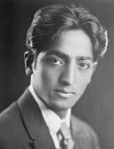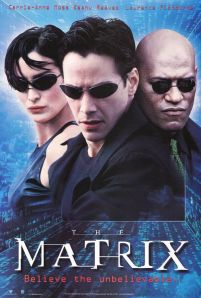 Eleven-year-old Sebastien De La Cruz sang the national anthem at one of the NBA games and racist rants on twitter followed. Then, just recently, the twitter world became inflamed once again with the crowing of Nina Davuluri, an Indian-American, as Miss America. Both incidents captured a bit of on-air news time, but what is not being
Eleven-year-old Sebastien De La Cruz sang the national anthem at one of the NBA games and racist rants on twitter followed. Then, just recently, the twitter world became inflamed once again with the crowing of Nina Davuluri, an Indian-American, as Miss America. Both incidents captured a bit of on-air news time, but what is not being  addressed is the underlying cause of these less-than-enlightened knee-jerk reactions.
addressed is the underlying cause of these less-than-enlightened knee-jerk reactions.
I was reminded of something I took note of two years ago in the post The Eve of Destruction…of Fear! where I wrote:
“…look at immigration reform. If you really think about it and look beyond the rhetoric, you will see that we are being manipulated to regard anyone who is not ‘American’ as a threat.”
Only now, it’s not just people who come here from another country who are being shunned; people who are born here are not considered to be “American” because of the way they look.
 I remember a talk Jean Houston, author and scholar, gave at the National Headquarters of the Theosophical Society back in 1992, titled “The Greening of the American Psyche.” She said that nationalism among a country’s citizens would become stronger. The Balinese would become more Balinese etc. Her statements at the time surprised me because I thought we were supposed to be evolving past the idea of duality (separateness) and moving toward the truth of non-duality (Oneness). But today, twenty years later, I see that she was right. With the rise of hate and so-called ‘patriot’ groups , the notion of “we are all one” is relegated to being a quaint new-age notion that has no grounding in the material world.
I remember a talk Jean Houston, author and scholar, gave at the National Headquarters of the Theosophical Society back in 1992, titled “The Greening of the American Psyche.” She said that nationalism among a country’s citizens would become stronger. The Balinese would become more Balinese etc. Her statements at the time surprised me because I thought we were supposed to be evolving past the idea of duality (separateness) and moving toward the truth of non-duality (Oneness). But today, twenty years later, I see that she was right. With the rise of hate and so-called ‘patriot’ groups , the notion of “we are all one” is relegated to being a quaint new-age notion that has no grounding in the material world.
 Krishnamurti said, “Patriotism, whether it is of the western kind, or of the eastern kind, is the same, a poison in human beings that is really distorting thought. So patriotism is a disease, and when you begin to realize, become aware that it is a disease, then you will see how your mind is reacting to that disease. When, in time of war, the whole world talks of patriotism, you will know the falseness of it, and therefore you will act as a true human being.” You can see how those statements would have brought K to the FBI’s attention. He was under their surveillance for a time and he did not speak in public from 1940-1944.
Krishnamurti said, “Patriotism, whether it is of the western kind, or of the eastern kind, is the same, a poison in human beings that is really distorting thought. So patriotism is a disease, and when you begin to realize, become aware that it is a disease, then you will see how your mind is reacting to that disease. When, in time of war, the whole world talks of patriotism, you will know the falseness of it, and therefore you will act as a true human being.” You can see how those statements would have brought K to the FBI’s attention. He was under their surveillance for a time and he did not speak in public from 1940-1944.
Media outlets have been reporting on the changing demographics of this country, which are being analyzed, politicized and debated with so much rhetoric, that we need a scorecard to keep track of all the perceived traits used to identify and separate ourselves from each other. Unfortunately, this separation has it cheerleaders in certain political and media circles, resulting in the acrimony and hate we saw directed at Sebastien De La Cruz and Nina Davuluri.
Identity, and thus duality, originates in the mind. All rhetoric, patriotic or religious, gets processed through the mind, which is where fear originates. Where are our hearts? Our heart is the place where our inner life is nurtured and from where compassion, understanding, tolerance, and yes, non-duality, is expressed.
When I wrote “The Eve of Destruction…of Fear!”, I stressed the importance of cultivating one’s inner life, through techniques like meditation, to get past the fear mongering, which is engendering a mean-spiritedness in people who claim to be Christian and who supposedly love God, but who continue to fail to recognize that there is no difference between us and the Divine. No Difference. But isn’t it interesting that every modality that would help us reach that understanding of ‘Oneness’ by cultivating our inner life is consistently attacked by some organized religions, who really don’t fully understand the concept in the first place, which is evident in this article from the Baptist Press. When they hear the word “meditation,” they counter with phrases like “alternative religions” or “cults.”
I’ve said before that the world is shallow, noisy, and divisive, so it’s not that difficult to keep people stuck in duality/fear as it’s constantly propagated by the patriotic and religious agenda pushing of governments, churches, and media outlets. They may be able to reach your mind, but they cannot reach your heart, unless you allow it.
“Mind, once swallowed by the Heart, is burped up as silence and peace.’ ~ Mooji





